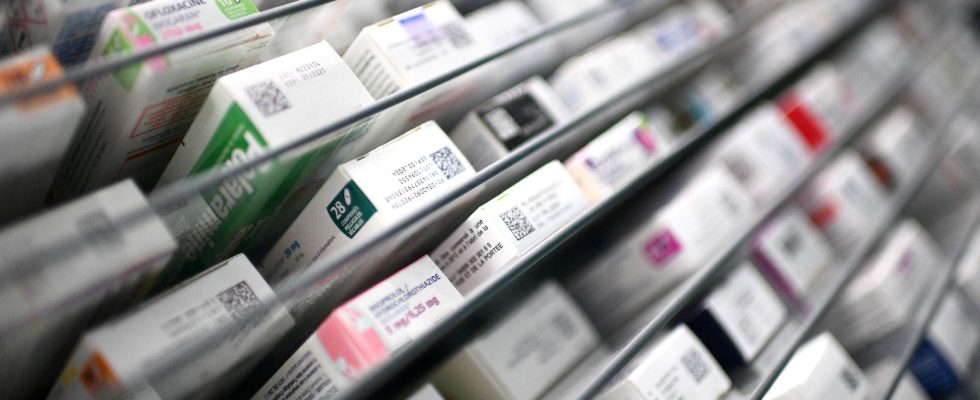The state is trying to avoid a repeat of the situation this year. At the end of 2022, the winter was marked by numerous shortages and risks of stockouts of essential medicines, even passing the threshold of 3,000 molecules concerned according to the National Agency for the Safety of Medicines and Health Products (ANSM). A phenomenon which mainly affects inexpensive medicines because they have been on the market for a long time, such as paracetamol, and which has been amplified by the pandemic and the epidemics of influenza and bronchiolitis.
The government has therefore stepped up measures in recent days, including plans to force certain medications to be sold individually in the event of low stocks.reveals Franceinfo this Wednesday, September 20. Everything to avoid a new crisis as winter 2023 approaches and ahead of the presentation of the 2024 social security financing bill.
An obligation to sell certain antibiotics individually
The latest solution envisaged by the government was thus revealed this Wednesday: in the event of a shortage of certain antibiotics, the authorities should therefore force pharmacists to sell these medications pill by pill, rather than the entire box, according to a government source cited by franceinfo . Information confirmed by AFP.
So no more selling an entire box upon presentation of a prescription, allowing unused capsules to expire while other patients need them. Another objective stated by the government according to AFP: the fight against antibiotic resistance, when overconsumption of antibiotics makes the bacteria resistant to this type of treatment.
A decision which could also help to reduce waste by delivering the exact number of tablets prescribed, in a country where the consumption of antibiotics remains among the highest in Europe. With this in mind, unit sales have already been authorized on an optional basis since 2022, but the habits of patients die hard: according to Philippe Besset, president of the Federation of Pharmaceutical Unions of France (FSPF), this has not represented only 0.1% of reimbursable medicines sold in one year.
The increase in the selling price of amoxicillin
Among the antibiotics concerned, we can particularly think of amoxicillin, a molecule commonly used to treat bacterial infections such as cystitis, sinusitis or acute tonsillitis.
Very popular and already subject to a shortage last winter, this drug will see its price increase by 10% from October 1. A government measure revealed by TF1 on August 30. If increasing the price of a drug that is not widely available may seem counterproductive, this announcement is in fact linked to an agreement between the State and 12 pharmaceutical laboratories.
In exchange for this increase in the selling price, manufacturers are required to have enough stocks in France to supply the pharmacies that need them. Otherwise, they will have to pay a fine. A measure which also seeks to encourage these laboratories to sell in France and not to relocate production outside France.
This solution, however, has an impact on customers: as the television channel’s website explains, a box of 14 tablets costing 2.06 euros for a patient (because it is reimbursed at 65%) will increase to 2.29 euros from the month of October.
Allow public hospitals to produce them themselves
Another strategy to combat shortages was announced by the Minister Delegate in charge of Industry, Roland Lescure. In a newspaper interview The echoes published this Wednesdayhe announces that the government plans to ensure the production of certain essential drugs at all costs, even if the laboratory wishes to stop marketing them.
Thus, the minister explains that if a manufacturer “stops the marketing of one of the 6,000 drugs of major therapeutic interest, it will then have a reinforced obligation to find a buyer, at the risk of suffering sanctions.” A measure inspired by the Florange law of 2014, aimed at avoiding the closure of profitable businesses. Roland Lescure goes even further, explaining that “if there is no buyer, the State may ask the company to transfer the exploitation of the drug free of charge for two years to a public structure”.
Public hospitals could thus be responsible for producing these drugs themselves, although in smaller quantities. Even if the drug continues to be produced, the Minister of Industry even predicts that “health establishments [et] “city pharmacies” can produce additional stocks in the event of shortages of a specific molecule, always according to The echoes.
Relocations already announced in France
These measures are in line with previous announcements: on June 26, the Elysée promised to relocate within five years the production of around fifty priority drugs, French production of which is insufficient and requires imports from outside Europe.
A measure representing at least 200 million euros of investments, with the objective of regaining health autonomy on a national and European scale. Manufacturers will also have to have “four months of stock” for 450 drugs classified as “essential” by the government, then specified The Parisian.
Announcements greeted with “vigilance” by the lobby of the Leem pharmaceutical laboratories. The organization is calling for “a viable economic model” for the drug in the next Social Security budget. All these measures and their financing must in fact be fixed during the 2024 social security financing bill, presented next week.
